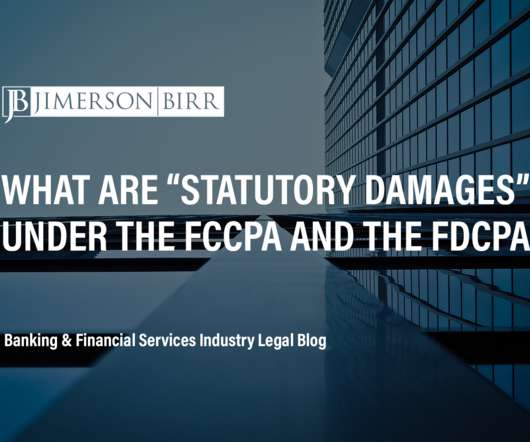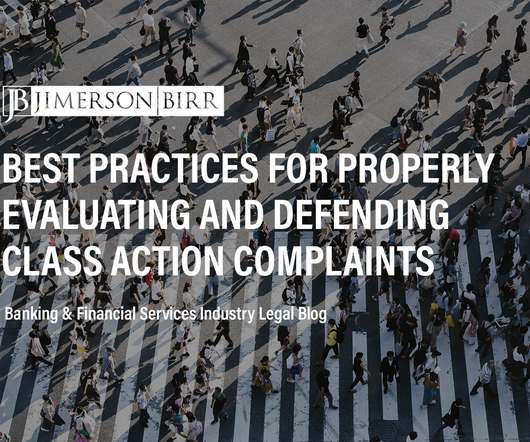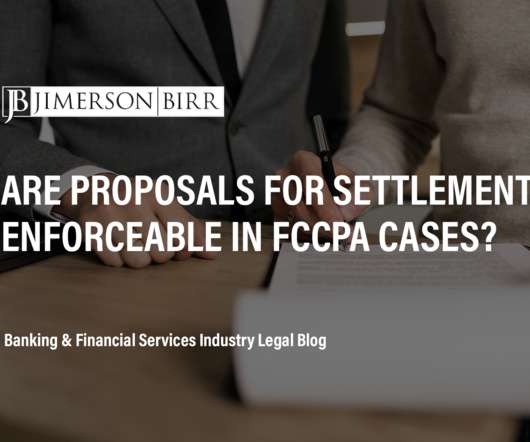What Are “Statutory Damages” Under the FCCPA and the FDCPA?
Jimerson Firm
JANUARY 17, 2023
The Florida Consumer Collection Practices Act (FCCPA) and the Fair Debt Collection Practices Act (FDCPA) are two pro-consumer statutes. Oftentimes, consumer lawyers bring claims for technical violations of the statutes, even when there are not any actual damages suffered by a consumer. In Laughlin v.













Let's personalize your content